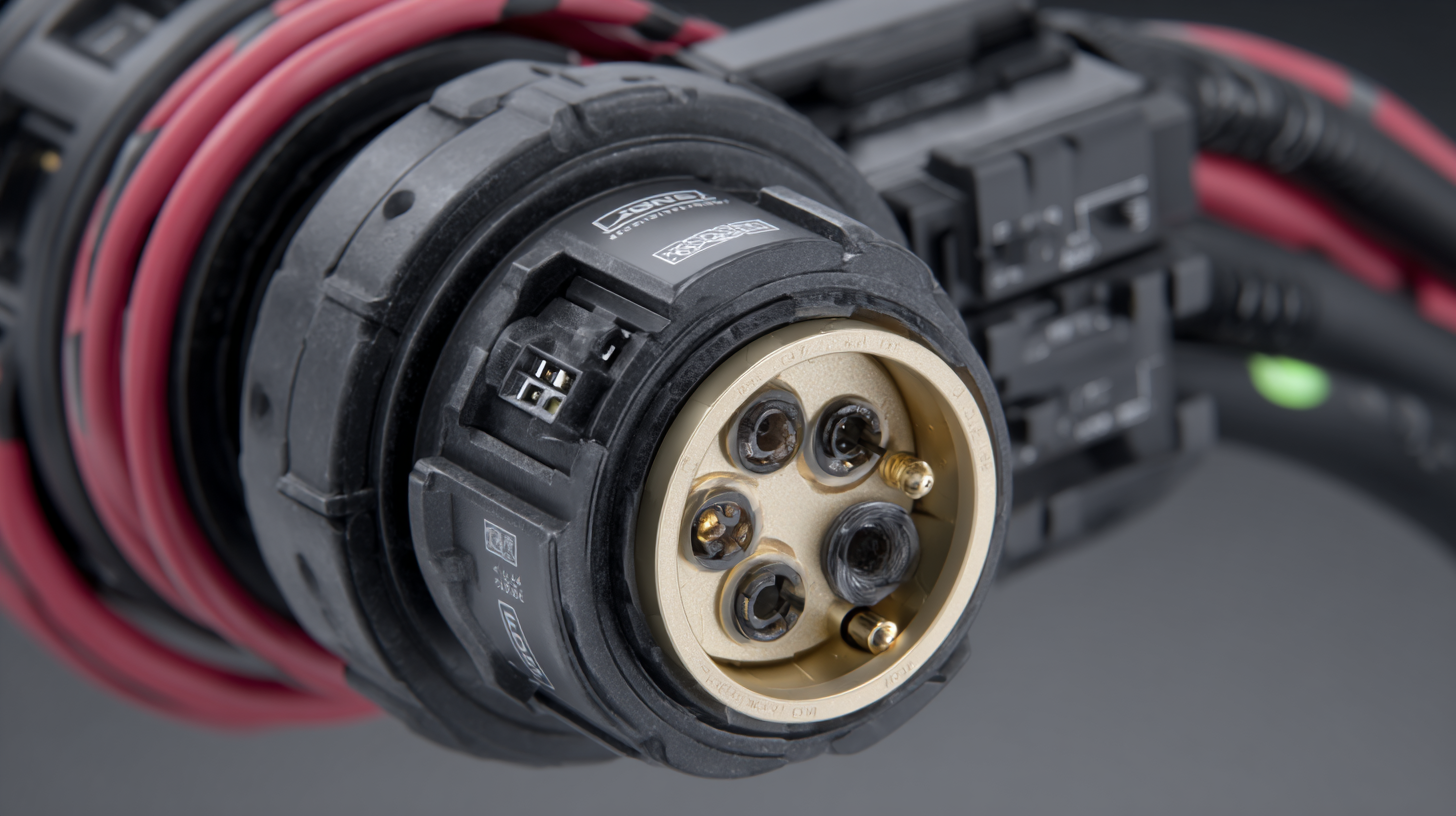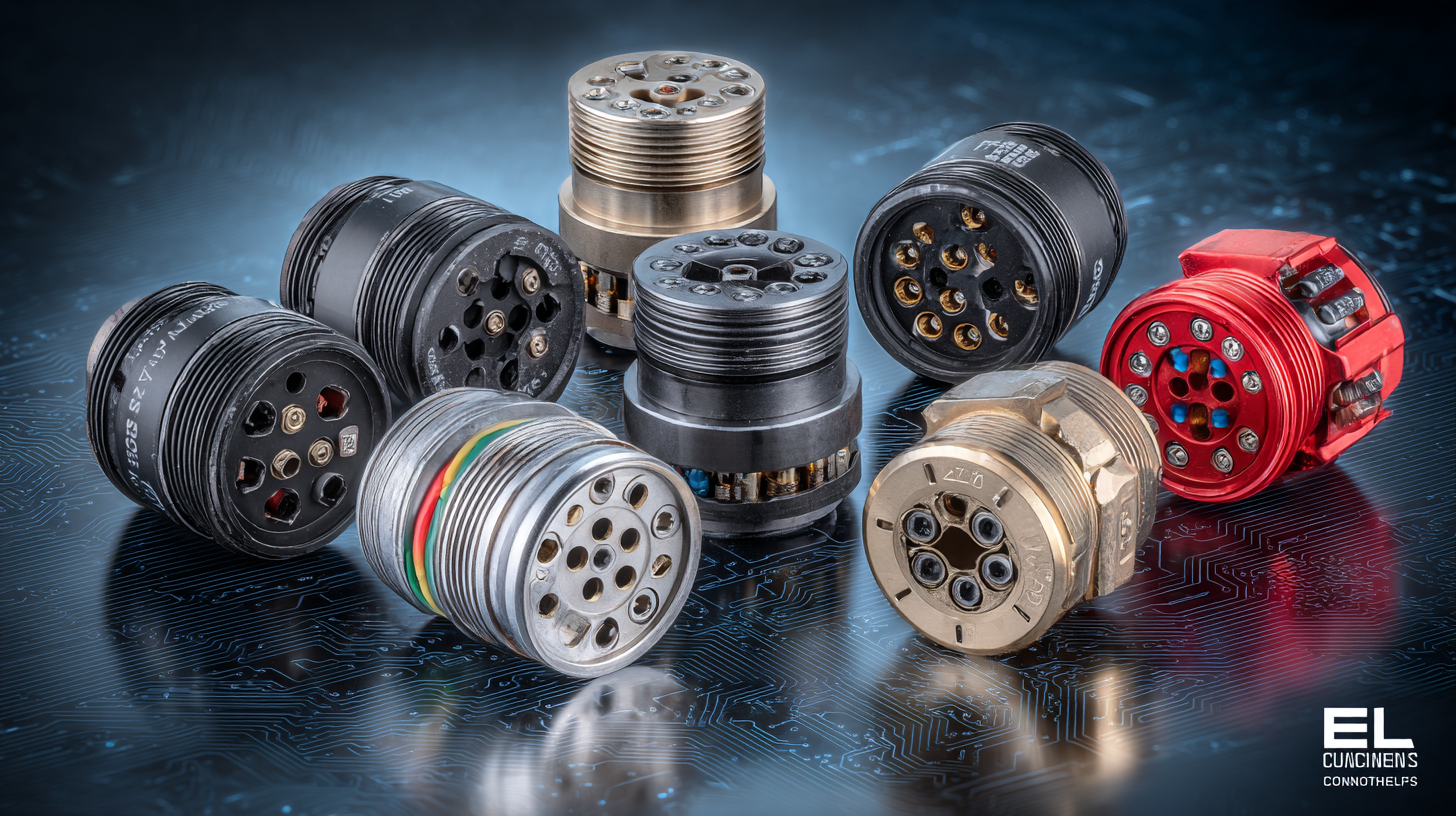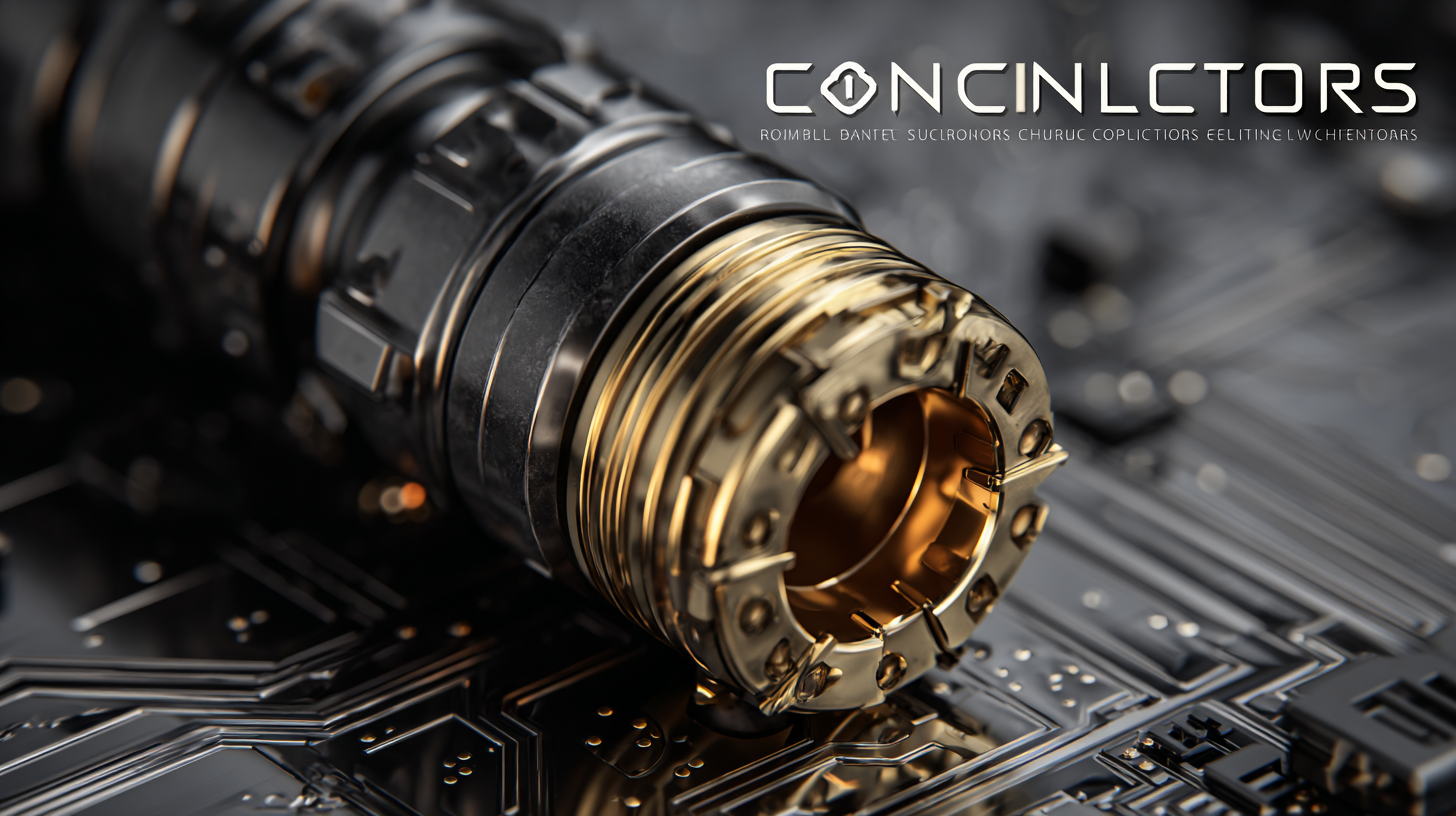
In the rapidly evolving automotive industry, the demand for reliable and efficient interconnection solutions has never been greater, especially with the surge in electric vehicle production. According to a report by Research and Markets, the global circular connector market is projected to reach $3.2 billion by 2026, driven by the need for robust connectivity that can withstand electrical interference and harsh environmental conditions. Circular connectors, known for their durability and ease of connection, play a crucial role in ensuring seamless communication among various automotive systems. As manufacturers strive to meet stringent quality standards and enhance vehicle performance, they face the dual challenge of integrating innovative circular connector technologies while addressing concerns related to electrical interference. This blog will explore the latest advancements in circular connectors, their applications within the automotive sector, and the challenges that engineers must overcome to ensure optimal performance and reliability.

In the rapidly evolving automotive industry, circular connectors have emerged as critical components in the design and functionality of vehicles. Their robust architecture supports essential electrical connections while ensuring resistance to environmental factors such as vibration, moisture, and temperature fluctuations. According to a report by MarketsandMarkets, the circular connector market in automotive applications is projected to reach USD 2.23 billion by 2025, driven by the increasing demand for electric and hybrid vehicles.
 One of the significant advantages of circular connectors lies in their ability to accommodate higher densities and multiple circuits within a compact form factor. As vehicles integrate more advanced technologies, including electric powertrains and smart sensors, the demand for reliable connectivity becomes paramount. A study from ResearchAndMarkets indicates that growth in vehicle electrification will fuel the adoption of high-performance circular connectors, which are designed to mitigate electrical interference and enhance signal integrity. This shift highlights the importance of selecting the appropriate connector types to meet the challenges posed by electromagnetic interference, which can adversely affect the performance of critical vehicle systems.
One of the significant advantages of circular connectors lies in their ability to accommodate higher densities and multiple circuits within a compact form factor. As vehicles integrate more advanced technologies, including electric powertrains and smart sensors, the demand for reliable connectivity becomes paramount. A study from ResearchAndMarkets indicates that growth in vehicle electrification will fuel the adoption of high-performance circular connectors, which are designed to mitigate electrical interference and enhance signal integrity. This shift highlights the importance of selecting the appropriate connector types to meet the challenges posed by electromagnetic interference, which can adversely affect the performance of critical vehicle systems.
The automotive industry is witnessing a transformative shift with the introduction of innovative circular connectors that significantly enhance vehicle performance. These connectors play a crucial role in optimizing the efficiency of electric vehicle charging stations, addressing electrical interference, and improving overall vehicle functionality. By utilizing advanced materials and designs, manufacturers can reduce costs and streamline production processes, making electric vehicle technology more accessible to consumers.
One key benefit of these circular connectors is their ability to minimize electrical interference, which is paramount in today's high-tech vehicles. The integration of zonal electrical architectures facilitates a more organized wiring system, ultimately reducing complexity and improving reliability. As automakers shift towards a more sustainable future, these innovative connectors are positioned to play an essential role in enhancing performance and supporting the broader goals of the industry.
Tips:
Electrical interference poses significant challenges in automotive applications, particularly as vehicles become increasingly reliant on advanced electronic systems. According to a report by the Society of Automotive Engineers, electrical noise can lead to performance degradation in critical components, affecting functions ranging from infotainment to safety systems. This interference can be particularly detrimental in systems operating in the 4 MHz to 2 GHz frequency range—often overlooked yet crucial for seamless vehicle operation.
To mitigate these challenges, selecting the best circular connectors is essential. High-quality connectors, equipped with shielding options and designed to maintain signal integrity, can significantly reduce susceptibility to electrical interference. In fact, research indicates that using connectors with proper grounding techniques can improve noise immunity by up to 30%.
**Tip:** Regular maintenance of connectors and cabling can enhance longevity and performance. Ensure all connections are secure and use connectors with robust environmental sealing to protect against moisture and contaminants, which can exacerbate interference issues.
Incorporating innovative design solutions, such as superior routing and layout planning, can further defend against interference. Advanced EMI/RFI shielding materials and techniques should be considered in the design phase of automotive systems, ensuring a reliable and robust electronic environment.
This chart illustrates the impact rating of various challenges associated with the use of circular connectors in automotive applications. The rating is based on a scale of 1 to 10, with higher values indicating more significant challenges.
In the rapidly evolving automotive industry, the integration of advanced connector technology has become paramount, particularly when addressing the challenge of electrical interference. As vehicles become increasingly reliant on complex electronic systems, the risk of interference from various electrical currents poses significant challenges. Innovative circular connectors, designed with superior shielding techniques and robust materials, serve as a frontline defense against these interferences. By utilizing advanced manufacturing processes, these connectors can minimize electromagnetic interference (EMI) and ensure reliable performance in harsh automotive environments.
Moreover, the implementation of hybrid connectors combines both power and data capabilities, facilitating seamless communication between various automotive systems while reducing the potential for interference. This dual functionality not only optimizes space within the vehicle but also enhances efficiency in data transmission.
Additional strategies, such as implementing differential signaling and selecting appropriate connector placements, further mitigate the risks associated with electrical noise. Overall, leveraging these advanced connector technologies is essential for optimizing vehicle performance and reliability, paving the way for a smoother, smarter driving experience.
The automotive industry is entering a new era characterized by rapid advancements in technology, leading to innovative designs and enhanced vehicle functionalities. Circular connectors play a pivotal role in this transformation, especially with the increasing integration of electric and hybrid systems. Future trends indicate a shift towards connectors that not only ensure reliable connectivity but also effectively combat electrical interference. Manufacturers are focusing on developing connectors with improved shielding techniques and materials that can withstand harsh automotive environments, ensuring longevity and performance.
Moreover, the rise of autonomous vehicles and connected car technologies presents unique challenges and opportunities for circular connector innovations. The need for high-speed data transmission is crucial, prompting the development of connectors optimized for bandwidth and efficiency. Future designs will likely incorporate features such as modularity for easy upgrades and maintenance, as well as smart technology that provides real-time diagnostics to preemptively address potential issues. This forward-thinking approach will help solidify the role of circular connectors in the automotive sector, driving advancements that enhance safety and performance while addressing electrical interference challenges.

